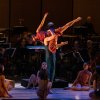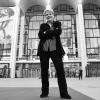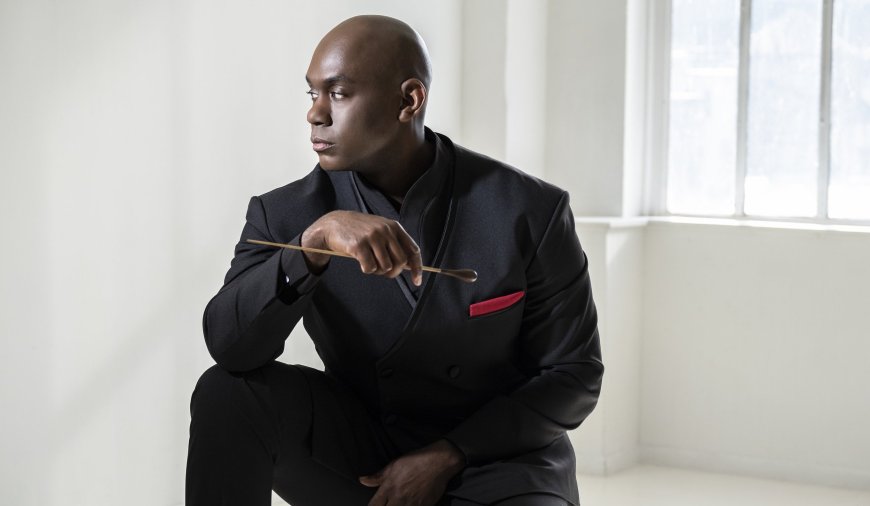
Berkeley Symphony’s Spring Gala earlier this month was a joyous way to celebrate outgoing Music Director Joseph Young, as well as to share fellowship, fundraising, food and drink, and a modicum of music.
Executive Director Marion Atherton credited Young with having rendered the 54-year-old ensemble “more inclusive, more adventurous, and more alive than ever before” — qualities visible in his expansive, ingenuous style of conducting. In turn, the characteristically modest Young, 43 and born and educated in South Carolina, thanked the organization and the city of Berkeley for investing his first-ever music directorship with “a sense of belonging.”
In 2007, Young was the first recipient of the Baltimore Symphony Orchestra-Peabody Conducting Fellowship. That same year, on the advice of a friend, he went west to Marin Alsop’s conducting workshop at the Cabrillo Festival of Contemporary Music and, with her support, applied to study at the Peabody Institute, where he became her student and now teaches alongside her.
An active advocate of contemporary composition, Young is on the board of New Music USA. He has conducted many American orchestras and has served as resident conductor of the National Youth Orchestra-USA at Carnegie Hall. In 2013, he placed as a semifinalist in the Gustav Mahler Conducting Competition in Bamberg, Germany, and in 2023, he conducted the newly formed Mzansi National Philharmonic Orchestra in South Africa.
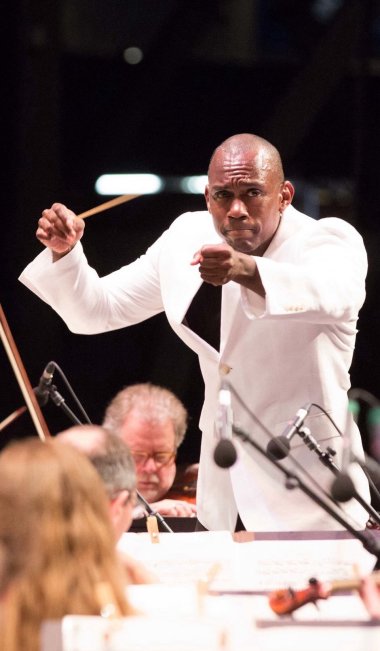
During Berkeley Symphony’s 2018–2019 season of guest conductors (following the resignation of Joana Carneiro), Young stepped in as an emergency substitute for an ailing Jonathon Heyward and was subsequently offered a permanent position with the orchestra. Now, concluding a six-year tenure, Young is set to lead his final performance as music director on June 1 at UC Berkeley’s Zellerbach Hall.
He told the assembled crowd at this month’s gala, “I’m someone who doesn’t look back a lot. I keep my eyes on the road ahead.” Still, he sat down with SF Classical Voice to reflect on his career-boosting experience in Berkeley and what might lie ahead elsewhere. This conversation has been edited for concision and clarity.
Your last-minute guesting with Berkeley Symphony pulled you away at the time from diverse duties at Peabody. How did that feel?
I’d wanted to get back on the stage. I love to perform. And it actually worked in my favor because the week after, I was already scheduled to do a kids’ concert for the San Francisco Symphony. But I hadn’t been aware that Berkeley was looking for a music director. I had been California dreaming because I’d never been to San Francisco.
How did the ensemble here feel to you?
They were hungry to make music and curious too. Even with this last-minute change of conductor, they made me feel safe onstage, that they would take some of the risks I might throw them. I was able to ask them questions: “What do you need musically? What are you passionate about?” I needed to hear that I could be something for them.
Putting modesty aside, what do you think you brought the orchestra?
Someone to steer the ship in a strategic way, to hear [the players’] wants and desires and mold them in a way that would feel like everyone was involved. It hadn’t felt like the Berkeley community was part of the Symphony. No one was bringing all of those amazing aspects together, and I knew I could figure out how to do that. I’m very proud of inviting a more diverse group of composers, musicians, and guest artists to this orchestra because that hadn’t really happened. Since I’ve been here, I think we’ve hired 10 new musicians.
Has it worked as a proving ground for you?
Yes. I had five executive directors over five years, and that’s a lot. We needed to take the [orchestra’s] playbook [out] of the 1970s and bring it into the 21st century. We had to hear all the stakeholders — the board, our important patrons, but also the musicians and audiences.

Berkeley needed innovation throughout the community. So we tried a concert in Orinda, playing in an amphitheater. I also wanted to close off streets and put the orchestra out there, put on a whole carnival with opening acts. That actually happened on my 40th birthday [the Front Row Festival on April 9, 2022]. I was so proud. What this orchestra means to me is that this introvert was able to have an outlet to discover himself.
How about the programming part of your mission?
That’s the joy of my life, highlighting some of the repertoire that’s been neglected and stories that haven’t been told in a way that connects with audiences. I’m not here to lecture. We’re cracking the door open for people to open it themselves.
When I joined the board of New Music USA, they were starting a program called Amplifying Voices. There are a lot of composers we’re now learning about who were not even mentioned when I was in undergrad and graduate school.
When I think of the diversity of composers I’ve brought here, one of the first who comes to mind is Jimmy López. He’s lived in Berkeley, but his pieces were never performed by the Symphony. So when I met him, I was like, ‘What’s the problem? We have to get our audiences to fall in love with you!’ We dived deep into who Jimmy is, and he turned into the biggest advocate for the Symphony. He was coming to every event.
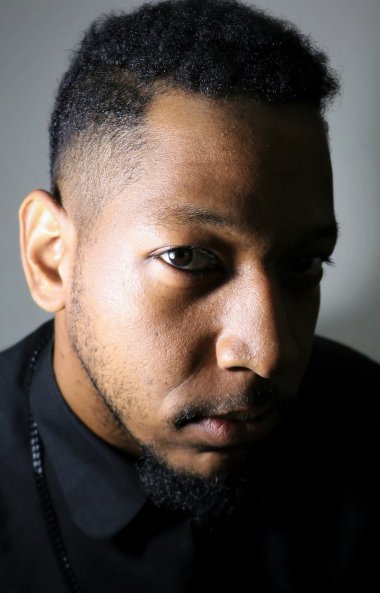
I also wanted to commission Brian Raphael Nabors. I wanted him to feel like he could write something substantial for the orchestra. New Music USA was kind of leery, but I said, “He looks like me.” And he came to work with the orchestra over the span of two years while he was writing his commission. We [also presented other] works of his, [and] he talked to our donors and wrote for our chamber music [concerts].
For our second program after the pandemic, I wanted a piece about the positive celebration of protests [Derrick Skye’s As Water, Freedom] because that’s so important here in Berkeley. What’s really important to building an inclusive musical experience in this industry is to make sure that young diverse composers feel like they belong.
But even if it’s a Tchaikovsky symphony, I want to go back and hear it in a different way. How can I tell the same story and let it be relatable to a different subject? We’ve heard about Brahms frantically trying to write a first symphony in the shadow of Beethoven, trying to find his voice. [I can relate from] trying to find my own voice as a Black conductor [and can also imagine] a woman trying to find her voice in this world. [That’s how] we continue to tell the narratives of these traditional pieces.
For your final program as music director, you’re featuring Dmitri Shostakovich’s Fifth Symphony, as well as a piece by Astor Piazzolla and a Bay Area premiere by Iranian American composer Gity Razaz.
The Shostakovich is a perfect part of this because it’s the people’s symphony. It’s an example of how resilience plays out. I’m always reminded of the hidden message Shostakovich had. He didn’t have to say a word, but the orchestra and the audience [at the 1937 premiere] felt exactly what [the music] was about. You need those moments to understand yourself and to feel like you belong, and this is a community that understands resistance and rising to the occasion.
Any regrets in leaving Berkeley? Anything you didn’t get done?
One of the biggest is that when I first got the job, I was very excited about becoming enriched in the arts and culture scene here, but my career and other obligations just kept me away from that — and I blame the pandemic a bit. Also, this orchestra needs someone who gives them full-time effort, and when I look at everything I’ve been doing, I don’t know if I’ve been the person for that.
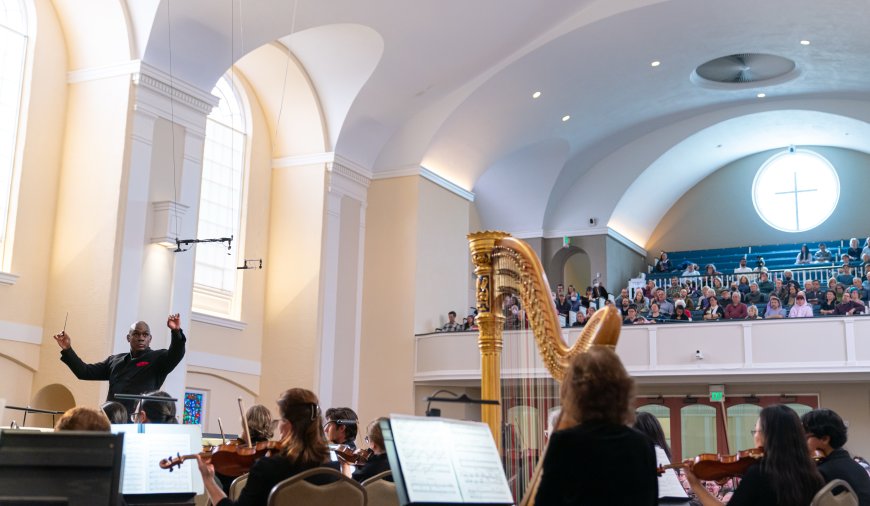
What kind of community are you seeking as you’re preparing to leave?
I think next year for me is about getting back to my teaching roots [at Peabody], teaching hand in hand with Marin [Alsop] the conducting class. But if I think about the last several months, I’ve made five debuts conducting and been on two continents. I’m not going to places looking to say that I want to be their music director. No, I’m wanting to find places where I feel comfortable making music and want to be invited back. It’s like speed dating. You’re trying to find attributes that are endearing to you — a sort of family trust, where some of the things I do on the podium may [seem] different to the orchestra but they feel that they trust me. Of course, the authority I have today is going to look different in 30 years, so I hope you will all go on that journey with me.


